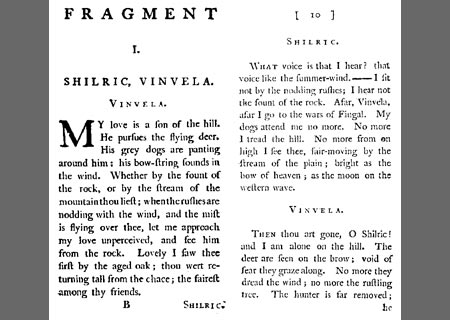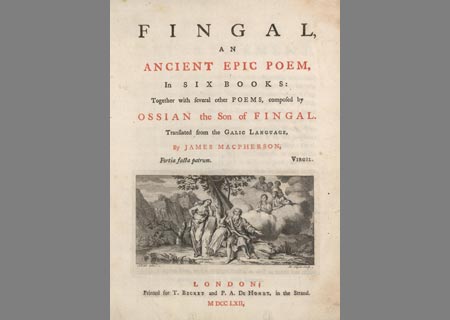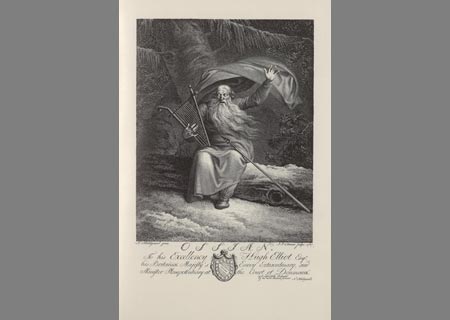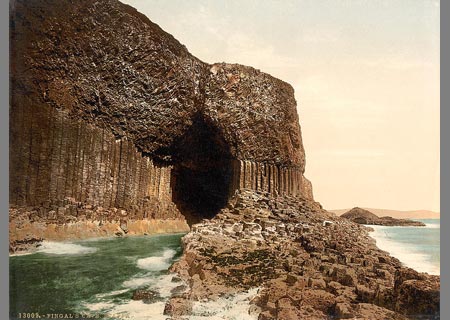James Macpherson’s Ossian Poems, Oral Traditions, and the Invention of Voice
- Volume 24, Number 2
- James Mulholland
- View PDF | Download PDF
- http://journal.oraltradition.org/issues/24ii/mulholland
Abstract
This essay investigates oral culture’s role in the creation of voice in James Macpherson’s Ossian poems. Macpherson insisted that these poems, first published in 1760, were translations of Ossian, an ancient Scottish bard; since their appearance, readers have fiercely debated the authenticity of his claim. This essay seeks to shift the debate by focusing on his poems as a printed object. It argues that Macpherson uses innovative literary strategies and typographical techniques to “invent” oral voices on the page. Through these techniques, Macpherson approximates the sense of connection between singer and listener, and transfers to his text the passion and wildness associated with bardic performance. His poetics addresses readers as participants, and reanimates their experience of the silent reading. This essay ultimately shows that traditions once considered marginal—geographically and politically—to English culture were in fact instrumental to the cohesion of the period’s notion of what poetic voice is and what it can do.














